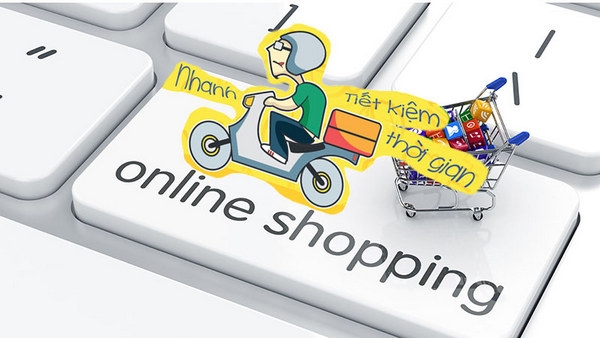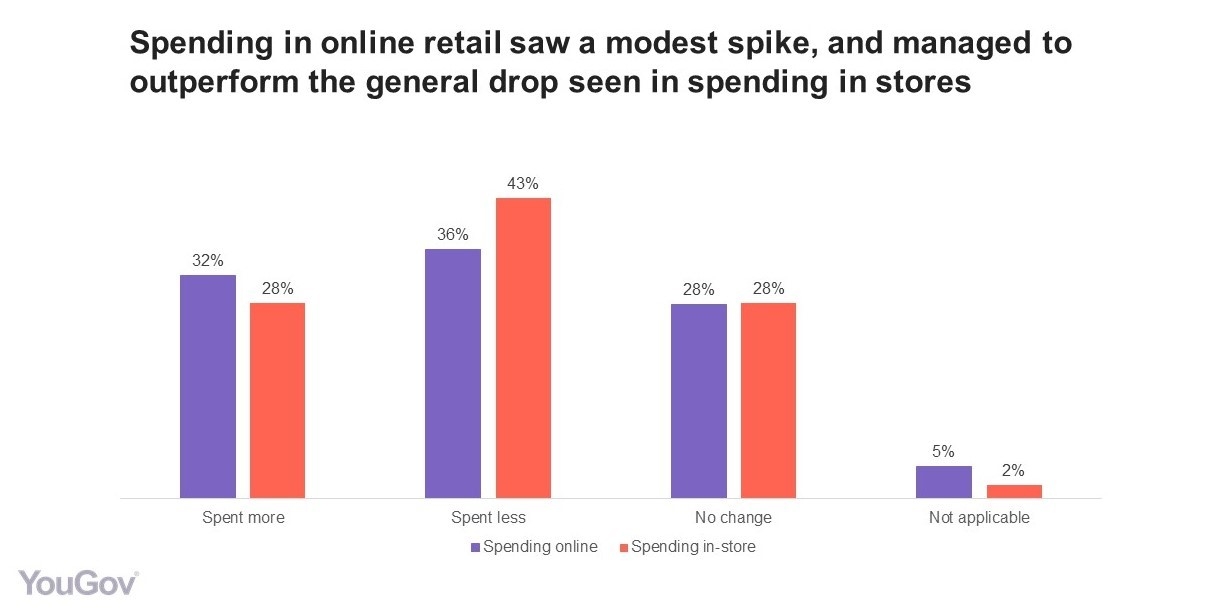How COVID-19 has changed e-commerce in Vietnam
 |
| How COVID-19 has changed e-commerce in Vietnam |
First, e-commerce outperforms traditional brick-and-mortar retail in a pandemic. Customers prefer to have goods delivered to their doorstep rather than going outside and risking infection. YouGov’s datashows that almost half of consumers (43 per cent) spent less in stores during previous waves of the outbreak compared to around a third (36 per cent) who spent less online.
 |
Second, brands who want to connect with consumers in Vietnam need to optimise their offer for mobile. Smartphones are the most popular device for going online, with two-thirds of people (66 per cent) accessing the internet on their handset. That makes mobile consumers an attractive audience for online retailers.
Third, the data shows that e-commerce spending spikes during a pandemic. In previous outbreaks as lockdowns forced shops to close and people to spend more time at home, around a third (32 per cent) of consumers spent more online. But this trend is not the same across the board.
The fastest-growing segment was groceries, with other items such as appliances and electrical goods seeing a fall in sales. So a new wave would be a good time for brands to launch fresh-food promotions and pause campaigns promoting other, non-essential goods.
 |
Last, but not least, COVID-19 has made cashless transactions more popular among consumers. In doing so, it has opened up huge opportunities for e-wallet platforms. Before the pandemic hit, close to 90 per cent of Vietnamese customers preferred cash on delivery when ordering online.
However, more than half of people (51 per cent) reported using cash less often since the outbreak. And almost two-thirds (60 per cent) now feel more positive about going cashless. This could accelerate growth in the number of customers using e-wallets even after the pandemic is under control.
Commenting on the data, Thue Quist Thomasen, CEO of YouGov Vietnam, said that, "Vietnam is now in the midst of a fourth wave outbreak. And this has big implications for companies looking to connect with consumers spending more time at home and more cash online. We know that – overall – e-commerce spending rises when cities are in lockdown. But this is not true for all categories and there will be both winners and losers."
“To grab these new opportunities, brands need to use data-rich insights to optimise their future outreach; to ensure that their campaigns speak to consumers and respond to their needs. This requires platforms that track fast-moving customer behaviour and tools which give in-depth insights into the Vietnamese consumer, their attitudes and spending habits," he added.
What the stars mean:
★ Poor ★ ★ Promising ★★★ Good ★★★★ Very good ★★★★★ Exceptional
 Tag:
Tag:
Related Contents
Latest News
More News
- The PAN Group acquires $56 million in after-tax profit in 2025 (February 03, 2026 | 13:06)
- Young entrepreneurs community to accelerate admin reform (February 03, 2026 | 13:04)
- Spring Fair 2026 launches national fair series (January 30, 2026 | 16:17)
- SnP celebrates 10th anniversary with new brand identity (January 30, 2026 | 14:41)
- Sci-tech sector sees January revenue growth of 23 per cent (January 30, 2026 | 11:20)
- Vietnam–Singapore partnership strengthens board leadership (January 30, 2026 | 11:02)
- DIGI-TEXX expands footprint with new hub in Ho Chi Minh City (January 30, 2026 | 09:04)
- Vietnamese spend $2.1 billion on food delivery apps in 2025 (January 29, 2026 | 15:14)
- Japan's NTT DATA signs agreement with CMC Global (January 29, 2026 | 15:03)
- Japfa Vietnam hosts annual customer conference (January 29, 2026 | 12:07)






















 Mobile Version
Mobile Version